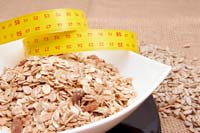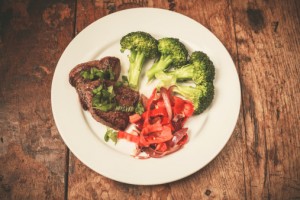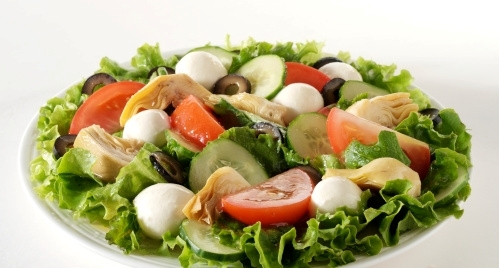Consuming Grains to Lose Weight
 Including whole grains in your diet is a healthy food option to lose weight. The whole grain food options are nutritious, affect in weight loss and are better for heart. Made from the entire grain seed, these may or may not contain grain kernel parts such as the bran and the germ.
Including whole grains in your diet is a healthy food option to lose weight. The whole grain food options are nutritious, affect in weight loss and are better for heart. Made from the entire grain seed, these may or may not contain grain kernel parts such as the bran and the germ.
Whole grains are often confused with refined grain food (white bread, food made with white flour). On the other hand, whole grain food options encompass oatmeal, whole-grain cereal, whole-grain pasta, brown rice and barley. These are considered healthy options to help you lose weight and fulfil the desire of having a slimmer profile. Besides losing excess body fat, whole grains help to get rid of VAT (visceral adipose tissue), which is associated with the risk of type 2 diabetes, coronary vascular disease and cancer.
Benefits of Whole Grains
- Whole grain foods should be included in the diet chart if you are eying for weight loss or eating for healthy diet.
- Excellent antioxidant properties along with vitamins and minerals are some of the nutritional benefits of whole grains.
- These are high in fibre content, which helps in digestion regulation.
- Individuals can lower the risk of heart disease, stroke, diabetes and cancer by sticking to whole grain food options.
- Whole grains are packed with energy, which ensures that one eats less. In this manner, the chances of obesity and deregulation of cholesterol levels decreases to a great extent.
- It helps in blood glucose control, lowers risk of heart disease and cancer and offers relief from constipation.
- Whole grains are an excellent source of protein, which helps in growth and maintenance of body's tissues. Owing to this effect, whole-grains are essential for growing children and pregnant and lactating mothers.
- Whole grain food options are important for vegetarians relying on plant protein to meet their everyday nutritional requirement.
Nutritional Facts on Whole Grains
- These are higher in protein, fibre, vitamins and minerals.
- Whole grains also have anti-oxidant properties to ascertain streamlined mechanism of the immune system.
- A single slice of whole grain bread has 70 calories on an average, which is almost double the amount of calories contained in two slices of refined grain bread.
- Whole grain bread slice has triple the amount of fibre contained in a single slice of white bread.
- Whole grain foods provide vitamins such as thiamin, niacin and folate.
- Minerals provided by whole grain foods include manganese, selenium, magnesium, copper, iron and sodium.
-
Losing Weight without Losing your Appetite
Looking charming and in shape is the dream of everyone, and while it’s
-
Discover the Power of Food Tracking
-
Weight Loss Tricks - Rapid Weight Loss For Teens
The weight loss for teenagers is usually one of the most ignored forms
-
Improve Your Health By Eating Raw Foods
A raw food diet consists of foods in their natural, unprocessed form.
-
Your Weight Loss Mindset Dictates Success Or Failure
More and more people are finding themselves lumped into the obese cat
-
How To Have Fat Reduction?
Being overweight or struggling with obesity is never the easiest of li
- DON'T MISS
- Supplements for Weight Loss - Hope or Hype?
- See Your Weight Loss
- Essential Principles On How To Lose Weight
- Advantages to Following Diet Plans
- Effective Weight Loss Methods For Absolutely Anyone
- Vince Del Monte’s System of Proper Diet for Weight Gain
- Why Diets DONT Work
- A Short Cut To Weight Loss!
- Lose That Stubborn Belly Fat With These Outstanding Physical Fitness Tips
- Breaking Weight Loss Plateau for Vegetarians




